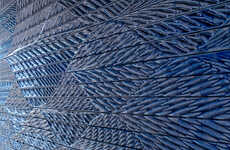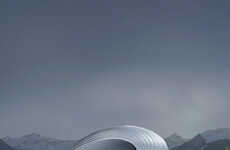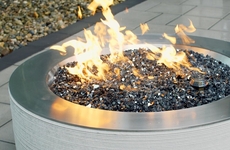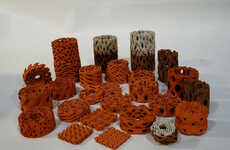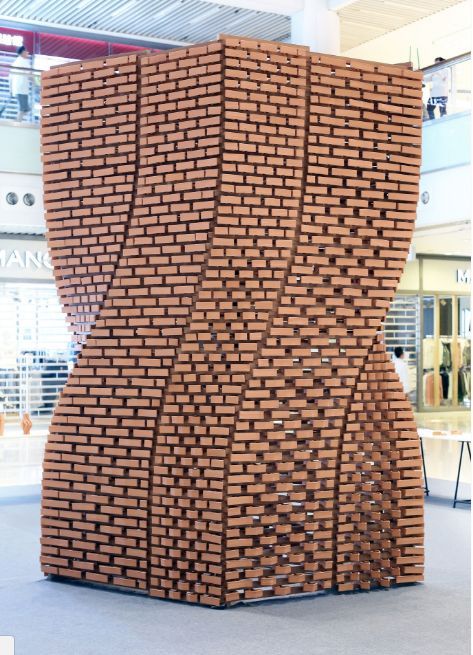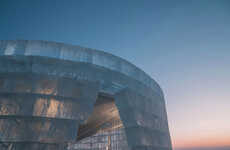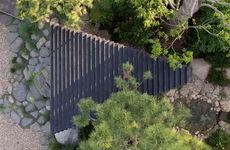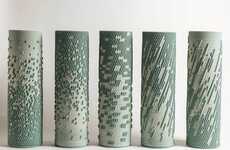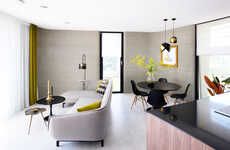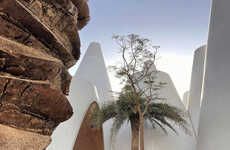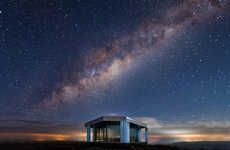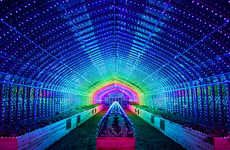
The 'Ceramic Constellation Pavilion' Features 2,000 Printed Clay Bricks
Laura McQuarrie — September 16, 2017 — Art & Design
References: arch.hku.hk & 3dprint
While the majority of brick pavilions that have been designed follow the regular shape of the building material, this one from the Faculty of Architecture at the University of Hong Kong (HKU) embraces a shapely design.
The unique shape of the brick pavilion can be attributed to 3D printing, which was an integral part of the project. In total, 2,000 unique bricks were created to assemble the towering structure, serving as an inspiring example of how the use of 3D-printed bricks may have the potential to transform the creation of conventional building structures. Each of the 3D-printed bricks was made in terracotta clay, printed in a matter of minutes and fired.
The brick pavilion, officially called the Ceramic Constellation Pavilion, will be exhibited for the summer, then moved to the HKU campus.
The unique shape of the brick pavilion can be attributed to 3D printing, which was an integral part of the project. In total, 2,000 unique bricks were created to assemble the towering structure, serving as an inspiring example of how the use of 3D-printed bricks may have the potential to transform the creation of conventional building structures. Each of the 3D-printed bricks was made in terracotta clay, printed in a matter of minutes and fired.
The brick pavilion, officially called the Ceramic Constellation Pavilion, will be exhibited for the summer, then moved to the HKU campus.
Trend Themes
1. 3D Printing in Construction - The use of 3D-printed bricks in creating unconventional building structures.
2. Shapely Design in Architecture - Embracing unique and non-traditional shapes in architectural designs.
3. Transforming Building Materials - Exploring the potential of transforming conventional building materials through innovative techniques like 3D printing.
Industry Implications
1. Construction - Incorporating 3D printing technology to enhance building processes and materials.
2. Architecture - Adopting shapely and unconventional designs in architectural structures.
3. Materials Manufacturing - Developing new materials and techniques for construction, such as 3D-printed bricks made from terracotta clay.
1.4
Score
Popularity
Activity
Freshness


